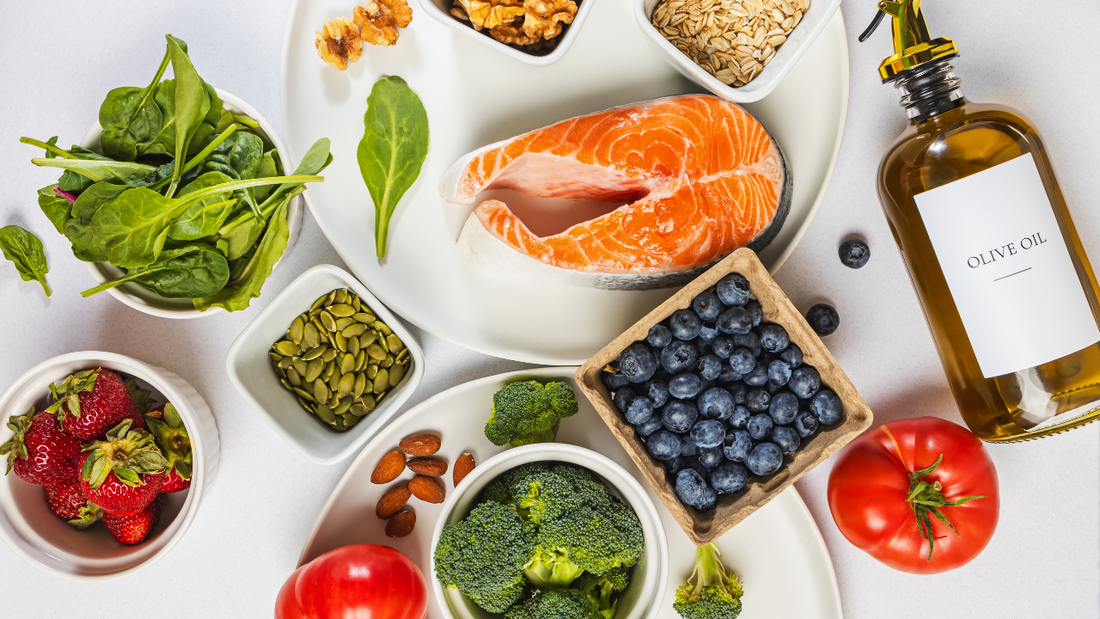
The Power of Food in Reducing Inflammation
When it comes to managing your health, reducing inflammation is key to feeling your best. Chronic inflammation has been linked to various health issues, including arthritis, heart disease, and diabetes, making it more important than ever to focus on what you eat.
While there’s no one-size-fits-all solution to prevent inflammation, the food you eat plays a powerful role in calming the body’s inflammatory response. By incorporating nutrient-rich, natural ingredients into your diet, you can give your body the tools it needs to thrive.
The Role of Food in Reducing Inflammation
Your body relies on a variety of vitamins, minerals, and plant compounds to regulate inflammation effectively. Antioxidants protect your cells from damage, while anti-inflammatory compounds reduce the strain on your body’s systems.
Ingredients rich in omega-3 fatty acids, polyphenols, and essential vitamins like vitamin C, for example, are known for their ability to combat inflammation. Building a diet around whole, unprocessed foods is one of the best ways to naturally support your health.
Anti-Inflammatory Foods Found in a Typical Diet
Many common foods are naturally anti-inflammatory and can easily be incorporated into your daily meals. These foods provide essential nutrients and compounds that help reduce chronic inflammation and promote overall health.
1. Leafy Greens
Spinach, kale, and Swiss chard are rich in antioxidants, vitamins, and minerals that combat inflammation. They’re also high in fiber, which supports gut health.
How to Use: Add leafy greens to salads, smoothies, or sauté them with garlic and olive oil.
2. Berries
Blueberries, strawberries, and raspberries are loaded with antioxidants like anthocyanins, which reduce inflammation and protect against oxidative stress.
How to Use: Top your oatmeal, yogurt, or cereal with fresh berries, or enjoy them as a snack.
3. Fatty Fish
Salmon, mackerel, and sardines are excellent sources of omega-3 fatty acids, which are well-known for their anti-inflammatory effects.
How to Use: Grill, bake, or pan-sear fatty fish and pair it with a side of vegetables for a complete meal.
4. Nuts and Seeds
Almonds, walnuts, flaxseeds, and chia seeds are rich in healthy fats and antioxidants that help lower inflammation.
How to Use: Sprinkle nuts and seeds on salads, oatmeal, or yogurt, or enjoy them as a snack.
5. Whole Grains
Brown rice, quinoa, and oats are high in fiber and nutrients that support a healthy gut and reduce inflammation.
How to Use: Replace refined grains with whole grains in your meals, such as using brown rice instead of white rice or whole-grain bread instead of white bread.
Additional Ingredients for Enhanced Anti-Inflammatory Benefits
To complement these everyday anti-inflammatory foods, Wellness by Davlie’s Anti-Inflammatory Tea offers a unique blend of ingredients that provide additional support for reducing inflammation. These carefully selected ingredients can take your anti-inflammatory efforts to the next level.
1. Chamomile
Chamomile isn’t just for winding down before bed. This calming herb contains apigenin, a natural compound with anti-inflammatory and antioxidant properties. It may help reduce inflammation in the gut and promote better digestion, which is often linked to chronic inflammation.
How to Use: Chamomile can be enjoyed as a tea or infused into dishes like soups or stews for a subtle, floral flavor.
2. Rooibos
Rooibos is a caffeine-free herbal tea rich in antioxidants like aspalathin and nothofagin, which help reduce oxidative stress and inflammation. Rooibos has also been shown to support heart health and improve circulation.
How to Use: Enjoy rooibos as a tea or use it as a base for smoothies and marinades.
3. Turmeric
Turmeric is a powerhouse spice thanks to curcumin, its active compound known for its potent anti-inflammatory and immune-boosting properties. Studies have shown curcumin can reduce inflammation markers and provide relief from joint pain.
How to Use: Add turmeric to curries, soups, roasted vegetables, or golden milk. Pair it with black pepper to enhance absorption.
4. Ginger
Ginger has been used for centuries to treat ailments like nausea and arthritis. Its active compounds, gingerols and shogaols, exhibit powerful anti-inflammatory effects, making it an excellent choice for reducing muscle soreness and joint pain.
How to Use: Use fresh ginger in teas, stir-fries, and baked goods, or add powdered ginger to smoothies and oatmeal.
5. Cinnamon
Cinnamon is not only a warm and comforting spice but also a potent anti-inflammatory agent. Its antioxidants, such as cinnamaldehyde, have been linked to reduced inflammation and better blood sugar regulation.
How to Use: Sprinkle cinnamon on oatmeal, yogurt, or roasted sweet potatoes, or stir it into your morning coffee or tea.
6. Nettle Leaf
Nettle leaf is packed with vitamins, minerals, and polyphenols that help combat inflammation. It’s particularly beneficial for individuals with joint pain and arthritis.
How to Use: Brew nettle tea or add dried nettle leaves to soups and stews for an earthy flavor.
7. Hibiscus
Hibiscus is rich in antioxidants like anthocyanins, which give it its vibrant red color and contribute to its anti-inflammatory properties. It may also help lower blood pressure and support heart health.
How to Use: Hibiscus tea is a refreshing option, or you can use the dried flowers in homemade jams and salad dressings.
8. Black Pepper
Black pepper is more than just a seasoning. Its active compound, piperine, not only enhances the bioavailability of curcumin in turmeric but also has its own anti-inflammatory and antioxidant properties.
How to Use: Add freshly ground black pepper to nearly any savory dish to boost both flavor and health benefits.
Building an Anti-Inflammatory Diet
Incorporating these ingredients into your meals is a great start, but an anti-inflammatory diet goes beyond individual foods. Here are some additional tips:
- Focus on Whole Foods: Prioritize fresh fruits, vegetables, whole grains, nuts, seeds, and legumes.
- Include Healthy Fats: Opt for omega-3-rich foods like salmon, walnuts, and flaxseeds to reduce inflammation.
- Limit Processed Foods: Avoid refined sugars, trans fats, and overly processed snacks that can contribute to inflammation.
- Stay Hydrated: Drinking plenty of water and herbal teas like Wellness by Davlie’s Anti-Inflammatory Tea supports overall health.
A Simple Recipe to Get You Started
Anti-Inflammatory Berry Bowl
This vibrant bowl combines everyday anti-inflammatory ingredients into a delicious and nutritious meal.
Ingredients:
- 1 cup mixed fresh berries (blueberries, strawberries, and raspberries)
- 1/4 cup rolled oats (or cooked quinoa for a gluten-free option)
- 1/4 cup unsweetened almond milk (or any plant-based milk)
- 1 tbsp chia seeds or flaxseeds
- 1 tbsp chopped walnuts
- 1/4 tsp ground cinnamon
- 1 tsp honey or maple syrup (optional)
Instructions:
- Combine the oats (or quinoa) and almond milk in a bowl. Let sit for a few minutes to soften.
- Top with fresh berries, chia seeds, walnuts, and a sprinkle of cinnamon.
- Drizzle with honey or maple syrup, if desired.
- Serve immediately and enjoy!
Bringing It All Together
Reducing inflammation doesn’t have to be complicated. By building your diet around common anti-inflammatory foods and enhancing it with Wellness by Davlie’s Anti-Inflammatory Tea, you’re taking a proactive step toward better health. Small changes can lead to big results over time, so start with the foods you already enjoy and add our tea for an extra boost. Your body will thank you!



